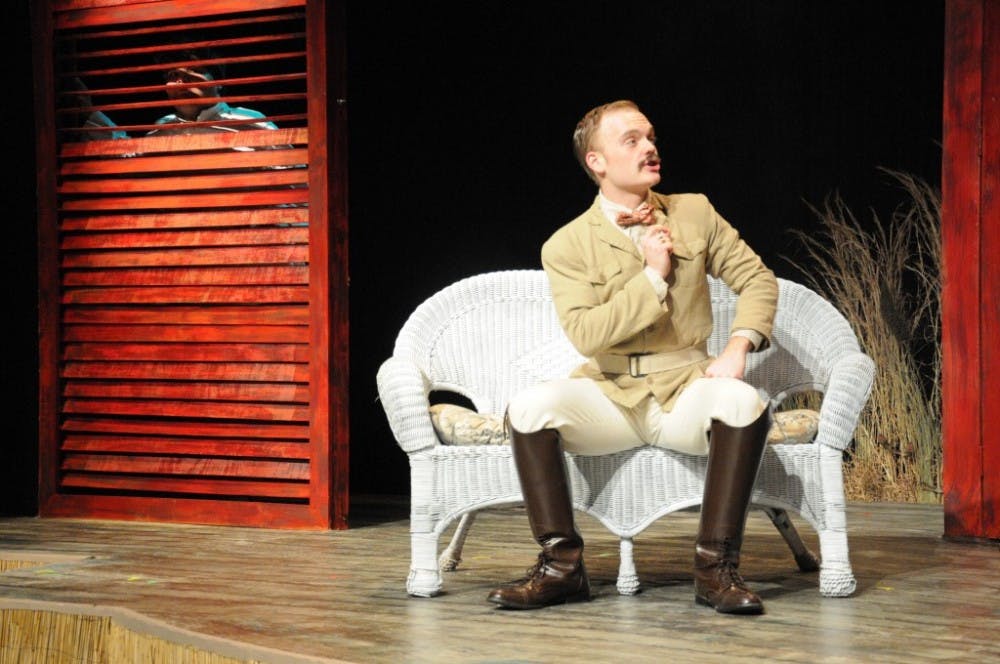Theater of the absurd took on a new meaning this week, as Fred Rubeck, chair of the Department of Performing Arts at Elon, debuted Caryl Churchill’s 1979 play “Cloud Nine” in the Black Box Theatre.
The play, which combined cross-dressing, a time jump and a huge helping of food for thought, presented an opportunity to laugh and ponder what people tend to overlook in their daily lives.
Act I, set in British-ruled Africa, introduces Clive, a colonial administrator dedicated to his country, queen and family — a clan with more than its fair share of problems. Infidelity, homosexuality, imperialism and the true nature of a dysfunctional family were touched upon as Clive’s family was joined by philandering explorer Harry and their widowed neighbor, Mrs. Saunders.
Act II put the audience through a time machine, setting the scene 25 years ahead. Clive’s children, Victoria and Edward, are introduced in the 1980s.
Churchill’s play explored the themes of family, love and experiencing life from multiple angles while exploring a concept from the previous act — the family’s next generation in a new decade.
The absurdity of “Cloud Nine” did not come from the themes that drove it but from the actors themselves and the parts they played. In Act I, Clive’s wife was played by a man, his son by a woman, his daughter by a doll and his native servant by a white man. In this way, it made traditional pairings, such as husband and wife, seem strange while less conventional pairings, like the explorer Harry and Clive’s son, made sense. And once the actors seemed settled into their roles, they switched around for Act II to play new parts.
At the heart of the play, there was the hope the audience would take a second to think about what they watched. After peeling away the costumes, the time periods and even the genders of the actors, the play is about people and the oppression they face from their society, both in the past and present day. The different dimensions of the play acted as aids to help the audience see ludicrous societal expectations on gender.
The chaos of Churchill’s play is simplified by its Black Box setting. Big stages usually require big props, which can distract from the heart of the action. In contrast, the Black Box, with four sets of blinds and a number of moving props, was sparse. This left the cast and their over-the-top personas to fill the empty spaces as a cluttered set could have taken away from the performance Rubeck and the performers offered their audience.
While this play may not be a typical performance one would see at a mainstream theater, it provides an opportunity to see a work that promotes active thinking. As Rubeck points out in his director’s notes, there are a number of questions that may be left unanswered that are still worth thinking about. The performers committed to every moment in character and presented a show that made every absurd moment seem exactly as it should be.


